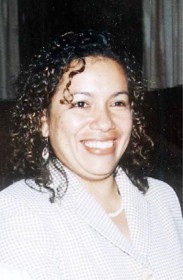Barbadian authorities are now in possession of documented allegations of ill-treatment meted out to Guyanese who have since been deported from the island.

Minister of Foreign Affairs Carolyn Rodrigues-Birkett told this newspaper yesterday that the complaints gathered both at the ministry and the consulate in Barbados were forwarded to Bridgetown for attention recently, and she is awaiting word from the authorities there.
Meanwhile, for July so far only four Guyanese have been deported from Barbados as compared to 53 during May and June, Commissioner of Police Henry Greene revealed yesterday.
It is hoped that the complaints will be investigated as promised by Barbados Prime Minister David Thompson, who, during a press conference here, made it clear that evidence was needed for any investigation to be conducted. Even as he promised the setting up of an interviewing panel to deal with any such allegations, Thompson at his July 1 press conference stood by his officials saying that he had no doubt that the relevant authorities were affording those individuals who were picked up, their full rights.
“I have every confidence that the immigration and law enforcement authorities of Barbados are acting and will act in strict conformity with the laws of Barbados and with full respect for the rights and dignity of the individual,” he said.
He said his government did not condone the abuse of power or inappropriate behaviour on the part of its public officials and if evidence was produced that any of those empowered to take action have been overzealous in carrying out duties, they would be disciplined appropriately.
This prompted the government here to invite persons to visit the ministry to give details of their experiences so that they would have specific cases to confront the Thompson administration with, for investigative purposes.
Yesterday, Rodrigues-Birkett admitted that there were previous issues with information thus the effort to ensure that the complaints reach the authorities.
Asked for a brief overview of those complaints, she explained that while some persons complained of being told ill things about their country, the majority of them were upset with the way they were picked up early in the morning and forcibly sent home with no time to put things in order.
Asked about the investigative panel, Rodrigues-Birkett said she was not aware whether this had been set up by the Barbadian government.
She revealed however that she and her counterpart Senator Maxine McLean have communicated on the establishment of a Memorandum of Understanding to deal with such issues.
This was another point raised by Thompson during his press conference as a means of addressing the matter. Rodrigues-Birkett told Stabroek News that based on her information it seems as though things have cooled down a bit, but observed that her ministry intends to remain vigilant to ensure that Guyanese are not treated in any way that goes against their basic rights.
Satisfaction
Immigration was a hot issue at the 30th Caricom meeting of Heads which was held here. Asked whether she felt contented at its conclusion that the issue would be resolved, Rodrigues-Birkett pointed to the fact that Thompson had said that he saw no reason why the applications for work permits put in by many Guyanese would not be granted.
She noted too that Thompson had made it clear that he did not condone maltreatment.
Meanwhile, the minister said too that with all the publicity the Barbadian policy and reactions to it have been receiving, she hopes those Guyanese who remain there who realize they do not qualify for the amnesty will return home and those who qualify would respond accordingly.
“I believe the issue calls for understanding on both sides. We cannot dictate the policies of any state, but just ensure that our citizens are treated properly. But I listened to Prime Minister Thompson when he spoke of the number of work permit applications, some of which have come from Guyanese, it says that they are willing to consider them and I think this is a good sign,” she said.
Those Caricom nationals who entered Barbados before December 31, 2005 and have been residing there without appropriate documentation for eight or more years will be eligible for consideration for regularization. However, they must meet stipulated conditions, which include a full criminal background check. Those who fall outside this eight-year span and who have overstayed their time will be asked to leave, Thompson had said, adding that those who do not leave voluntarily will be deported. He added that managed migration has been a long-standing policy of his Democratic Labour Party (DLP).
The policy was announced on May 5 and came into effect on June 1. Since the announcement of the policy, reports had surfaced about inhumane treatment by immigration officers; the homes of Guyanese being raided in the wee hours and belongings taken away and individuals not found with the necessary documentation being escorted to the airport and ordered to leave.
Barbados has since said it is willing to consider the readmission of persons who have overstayed their time through a protocol or memorandum of understanding but will not swerve from its current policy to regularize undocumented Caricom nationals.
Prime Minister Thompson proposed too the establishment of a formal mechanism for regular consultation and information exchange between Chief Immigration Officers and senior personnel.





